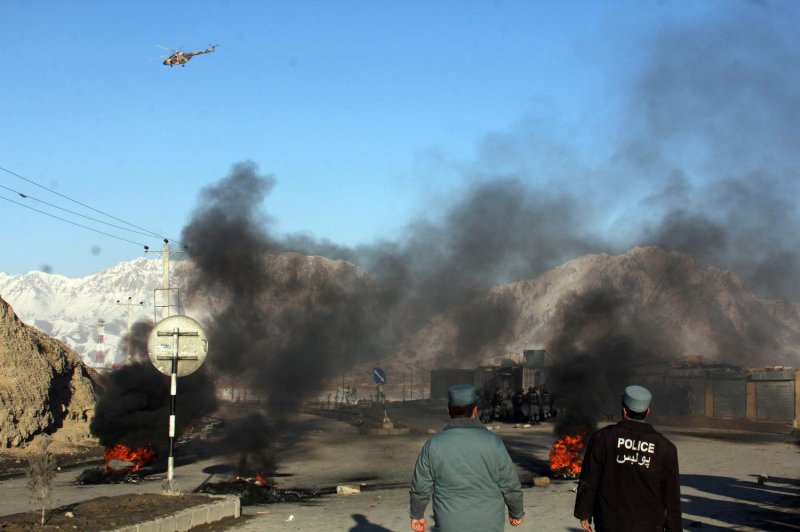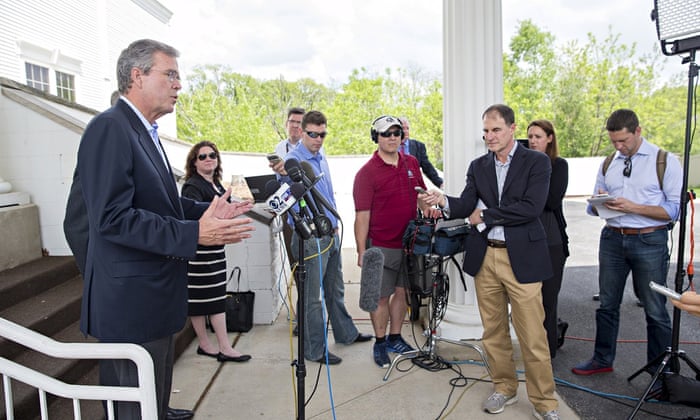 The number of women and children killed or injured through the year in Afghanistan increased by 23 percent and 13 percent, respectively, as overall casualties reached record levels.
The number of women and children killed or injured through the year in Afghanistan increased by 23 percent and 13 percent, respectively, as overall casualties reached record levels.
There have been 4,921 civilian casualties -- 1,592 civilians killed and 3,329 wounded -- in Afghanistan from January until June, a one percent increase over last year's record, according to a report by the United Nations released Wednesday.
U.N.: Civilian casualties in Afghanistan reach record levels
The Company Getting Rich Off the ISIS War
For the Middle East, the growth of the self-proclaimed Islamic State has been a catastrophe. For one American firm, it’s been a gold mine.
The war against ISIS isn’t going so great, with the self-appointed terror group standing up to a year of U.S. airstrikes in Syria and Iraq.
But that hasn’t kept defense contractors from doing rather well amidst the fighting. Lockheed Martin has received orders for thousands of more Hellfire missiles. AM General is busy supplying Iraq with 160 American-built Humvee vehicles, while General Dynamics is selling the country millions of dollars worth of tank ammunition.
Perpetual war creates endless consequences
When the outgoing chairman of the Joint Chiefs of Staff, Gen. Martin Dempsey, began this month by issuing a farewell report on U.S. military strategy, the gist was hardly big news. “Dempsey to Pentagon: Prepare for the Never-Ending War” read the headline on the cover page of the National Journal.
The “war on terror” now looks so endless that no one speculates anymore about when it might conclude. “This war, like all wars, must end,” President Barack Obama declared in a major speech more than two years ago. “That’s what history advises. That’s what our democracy demands.” But midway through 2015, this war seems as interminable as ever.
Far from facing the truth, the US is telling new lies about Iraq
 A couple of weeks ago, the Republican presidential hopeful Jeb Bush was asked in an interview with Fox News whether, knowing what he knows now, he would have invaded Iraq.
A couple of weeks ago, the Republican presidential hopeful Jeb Bush was asked in an interview with Fox News whether, knowing what he knows now, he would have invaded Iraq.
It’s the kind of predictable question for which most people assumed he would have a coherent answer. They were wrong. Jeb blew it. “I would have [authorised the invasion],” he said. “And so would have Hillary Clinton, just to remind everybody. And so would almost everybody that was confronted with the intelligence they got.”
The Real Cost of Vietnam
The commemoration of the end of the Vietnam War this week in 1975 will be lost on many Americans who are too young to recall the tumultuous events of the Indochina wars. (We also bombed Laos and Cambodia mercilessly in the same period.)
The iconic photographs of the U.S. helicopter about to lift off from the roof of the U.S. embassy in Saigon, with desperate Vietnamese scrambling to board, as the final reckoning are symbolic but also misleading. The image of the "pitiful, helpless giant" misleads because the U.S. military had almost completely withdrawn many months before after having laid waste to Vietnam, north and south, for nearly a decade.
The Terrible Legacy of Agent Orange
I wanted to put it all in the context of today’s Vietnam, forty years on. To see victims of the second and third generations, where and how they live. To learn why children and grandchildren of people affected are still being born with disabilities, to find out if people know about the dangers, and if so when did they found out.
And to take pictures of all that.
As we got closer to the former front lines travelling from the north, the number of cases increased. We kept in touch with VAVA, the main association helping victims, and they gave us much needed information, including the number of victims and where they live.
Americans have yet to grasp the horrific magnitude of the ‘war on terror’
 Even as the U.S. expands its military involvement in the Middle East and delays the troop drawdown from Afghanistan, the staggering human toll of the U.S. “war on terrorism” remains poorly understood.
Even as the U.S. expands its military involvement in the Middle East and delays the troop drawdown from Afghanistan, the staggering human toll of the U.S. “war on terrorism” remains poorly understood.
A new report (PDF), whose release last month coincided with the 12th anniversary of the U.S.-led invasion of Iraq, attempts to draw attention to civilian and combatant casualties in Iraq, Afghanistan and Pakistan. Yet the study, authored by the Nobel Peace Prize laureate International Physicians for the Prevention of Nuclear War and other humanitarian groups, barely elicited a whisper in the media. Washington’s preoccupation with the rise of the Islamic State in Iraq and the Levant (ISIL) and other regional conflicts has largely obscured the humanitarian, economic and political toll of its “war on terrorism.”
More Articles...
Page 4 of 114

 War Glance
War Glance






























